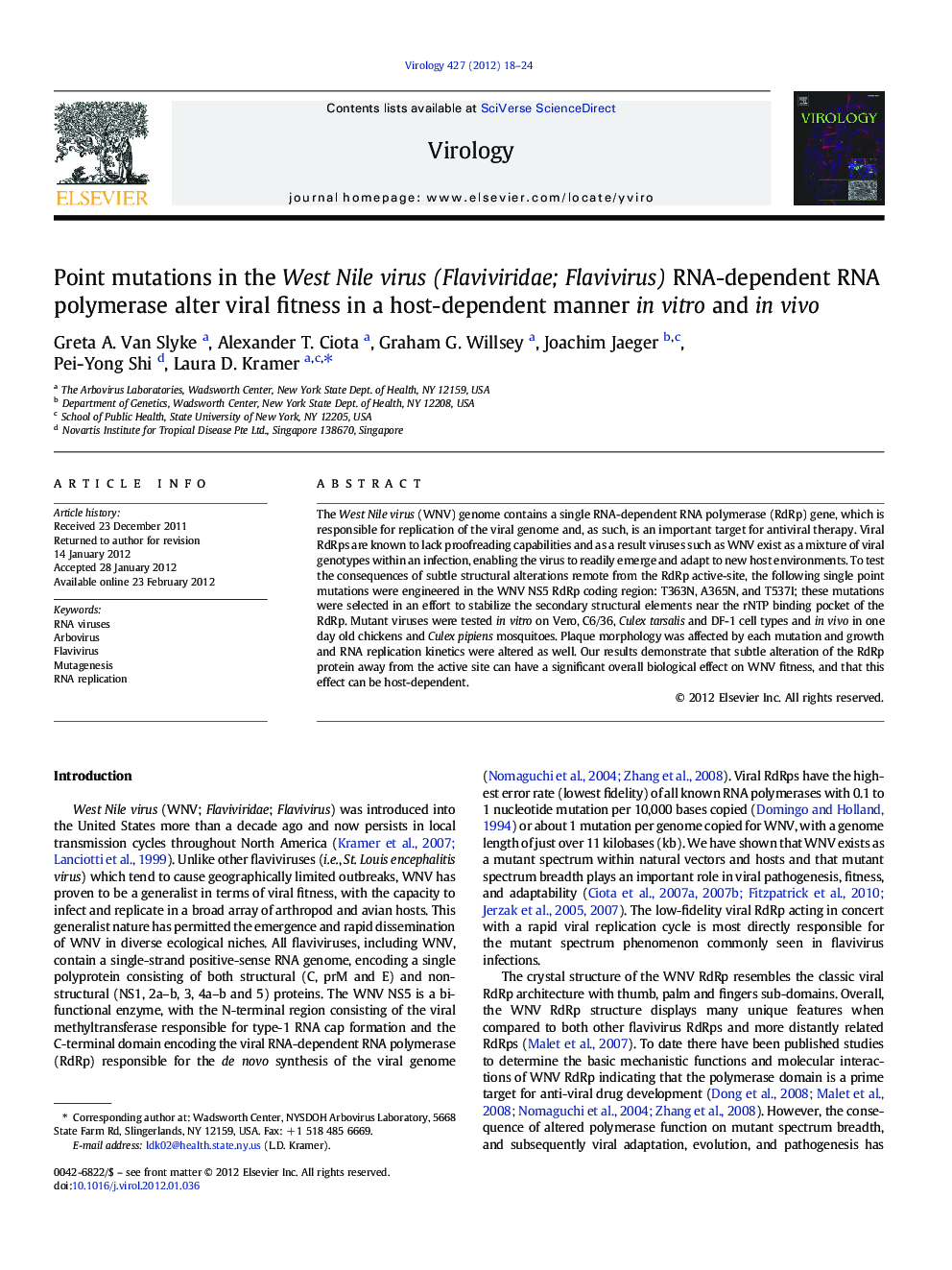| Article ID | Journal | Published Year | Pages | File Type |
|---|---|---|---|---|
| 3424453 | Virology | 2012 | 7 Pages |
The West Nile virus (WNV) genome contains a single RNA-dependent RNA polymerase (RdRp) gene, which is responsible for replication of the viral genome and, as such, is an important target for antiviral therapy. Viral RdRps are known to lack proofreading capabilities and as a result viruses such as WNV exist as a mixture of viral genotypes within an infection, enabling the virus to readily emerge and adapt to new host environments. To test the consequences of subtle structural alterations remote from the RdRp active-site, the following single point mutations were engineered in the WNV NS5 RdRp coding region: T363N, A365N, and T537I; these mutations were selected in an effort to stabilize the secondary structural elements near the rNTP binding pocket of the RdRp. Mutant viruses were tested in vitro on Vero, C6/36, Culex tarsalis and DF-1 cell types and in vivo in one day old chickens and Culex pipiens mosquitoes. Plaque morphology was affected by each mutation and growth and RNA replication kinetics were altered as well. Our results demonstrate that subtle alteration of the RdRp protein away from the active site can have a significant overall biological effect on WNV fitness, and that this effect can be host-dependent.
► Mutation of WNV RdRp leads to significant attenuation of viral fitness in vitro. ► Mutation of WNV RdRp leads to significant attenuation of viral growth in chickens. ► RdRp-mutant WNV is able to replicate to wild-type levels in the mosquito vector. ► Results suggest host-specific mechanism at the level of RNA replicase complex.
